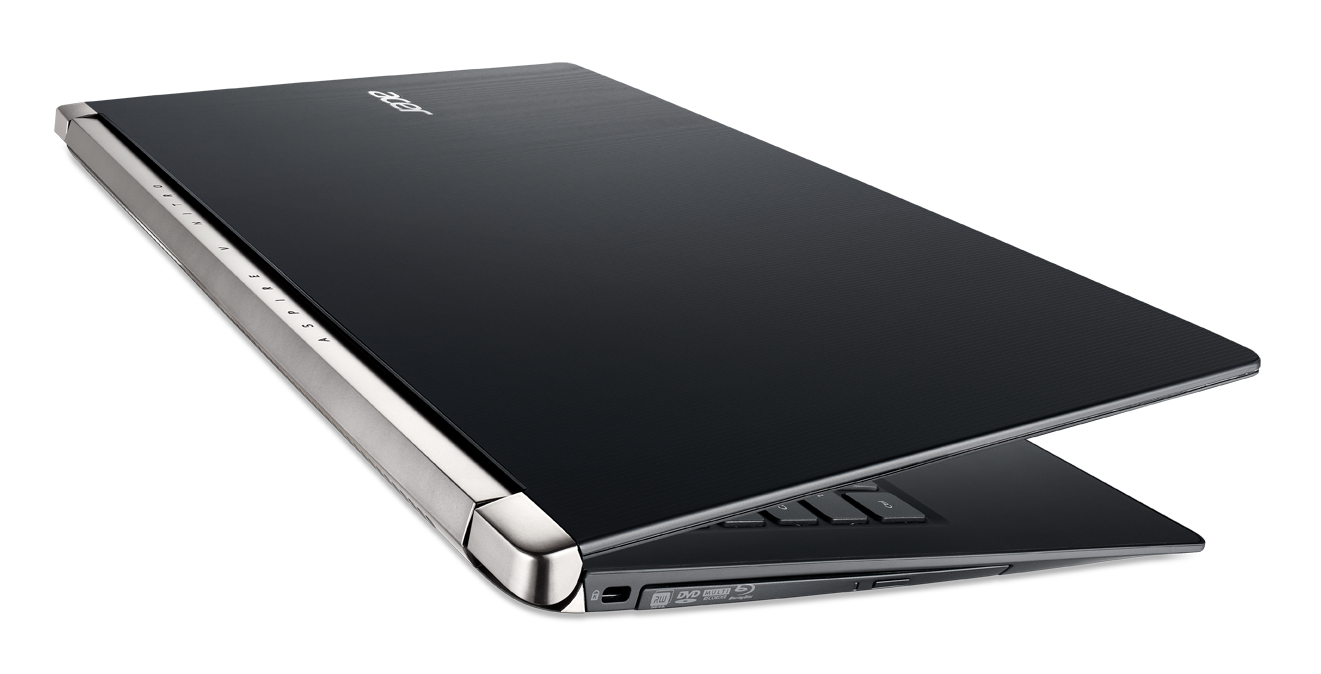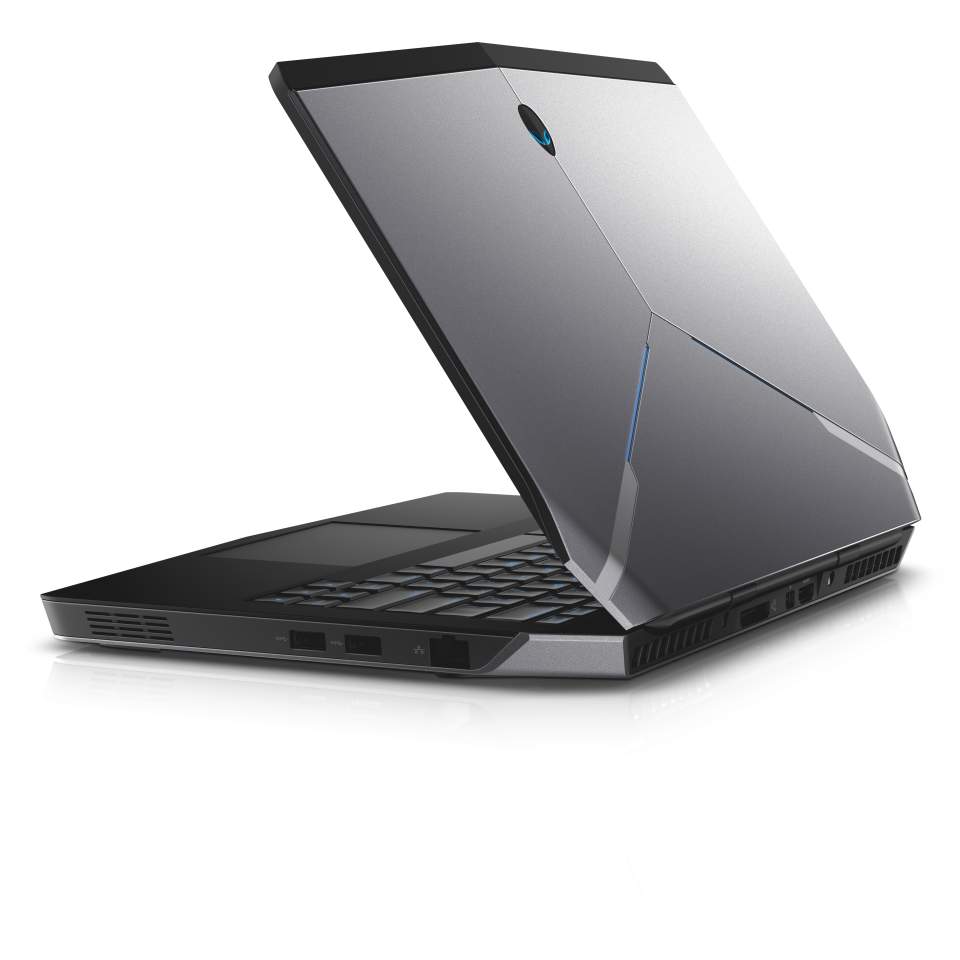Nvidia GeForce GTX 960M, 950M Mobile GPUs Debut
Today, Nvidia announced the latest additions to its mobile GPU family with the GeForce GTX 960M and GTX 950M. We weren't able to get our hands on a reference system ahead of time, so we have no early benchmarks to share, but we do, at least, have specs and some details.
As far as specifications go, both the GTX 960M and 950M are actually very similar. The GPUs on both feature 640 Cuda cores. The GPU on the GTX 960M runs at 1096 MHz, and will boost higher when it has the thermal headroom; the GTX 950M will run at up to 914 MHz plus Boost.
Do consider, though, that these won't be the operating speeds in all laptops, as thinner and lighter laptops may not have the cooling power to keep the GPUs running at these speeds all the time. In these situations, even environmental conditions can affect actual performance.
Both of the cards have GDDR5 memory that runs at 2500 MHz over a 128-bit memory interface. The GTX 950M, however, also comes in a variant that has DDR3 memory instead, which runs at 1000 MHz over the same 128-bit memory interface. This one will probably go for a little less, and be featured in systems aimed more towards media consumption than gaming systems.
Naturally, both the GPUs are based on the Maxwell architecture, are fabricated on the 28 nm lithographic process, and come with support for Microsoft's upcoming DirectX 12 baked in.
Like the previously-launched GTX 980M and 970M, the new 960M and 950M offer Nvidia's BatteryBoost technology, which intelligently dials down frame rates when the GPU's full resources aren't needed. The more efficient GPU usage thus prolongs battery life. BatteryBoost should work hand in hand with Nvidia's Optimus technology, which trades off the notebook's GPU workload between integrated and discrete graphics, optimizing battery life without denting performance.
The GPUs also offer ShadowPlay, Nvidia's game capture and streaming tool that's been part of the GeForce experience since version 1.7 landed back in the fall of 2013.
Get Tom's Hardware's best news and in-depth reviews, straight to your inbox.
Along with the launch of the 960M and 950M, it appears that there are a slew of notebooks from your favorite vendors now available with the new chips.
Nvidia noted that the Alienware 13, HP Omen, and Lenovo Y50 will all be updated with the new GPUs. We also have forthcoming details on the Razer Blade Pro (GTX 960M with 4 GB of GDDR5 VRAM) and the Acer V Nitro (GTX 960M, no mention of VRAM), and MSI has several updated SKUs. These include the 15-inch GE60 and 17-inch GE70 Apache, 15-inch GP60 and 17-inch GP70 Leopard, and the 24-inch Gaming 24GE AIO gaming PC.
One thing you'll notice about most of these gaming notebooks is that they're rather thin; it seems the age of the heavy, chunky gaming laptop is ending. We'll be curious to see how the 960M, 950M and 940M help these more svelte gaming notebooks handle that oh-so-important balance of power and cooling.
Follow us @tomshardware, on Facebook and on Google+.
Seth Colaner previously served as News Director at Tom's Hardware. He covered technology news, focusing on keyboards, virtual reality, and wearables.
-
Vlad Razvan " it seems the age of the heavy, chunky gaming laptop is ending" - you're so wrong. First of all, the 950m and 960m GPUs will not satisfy a true gamer (unless all they play is MMORPGs). Specs-wise, the 960m's 650 cuda cores are a little over half of the 1024 cores the GTX 960 (desktop version) uses - this should equal a little over 50% of the 960's perfromance. I for one am not happy with the performance of the desktop GTX 960 in recent games @ full HD (laggy, crawls to a halt if you enable quality textures and shadows due to the slim 128 bit bus) - the mobile version will be even slower.Reply
As a gamer, I want to be able to enjoy content at as high a quality as I can, so I go for the fastest card I can afford. These cards will only fit into "bulky gaming laptops" due to power and cooling prerequisites. Furthermore, I'd rather own a large bulky laptop that can house a powerfull gaming configuration rather then a slow thin "gaming" laptop. As it is, my laptop sits on my desk 90% of the time - I don't even use the built in keyboard and monitor (and why would I when all manufacturers refuse to make anything bigger then 17,3"). -
Quixit Well, compared to the new MacBook these are positively enormous. Perhaps our definition of how large a laptop should be is changing, not the relative size of gaming laptops.Reply -
scolaner Reply"...GTX 960M and 960M are actually very similar."
I bet they are. :-)
Very astute. Fixed, thanks for noting it. -
Urzu1000 Anyone know what the actual difference is with the memory interface? In real world performance?Reply -
jase240 Reply" it seems the age of the heavy, chunky gaming laptop is ending" - you're so wrong. First of all, the 950m and 960m GPUs will not satisfy a true gamer (unless all they play is MMORPGs). Specs-wise, the 960m's 650 cuda cores are a little over half of the 1024 cores the GTX 960 (desktop version) uses - this should equal a little over 50% of the 960's perfromance. I for one am not happy with the performance of the desktop GTX 960 in recent games @ full HD (laggy, crawls to a halt if you enable quality textures and shadows due to the slim 128 bit bus) - the mobile version will be even slower.
As a gamer, I want to be able to enjoy content at as high a quality as I can, so I go for the fastest card I can afford. These cards will only fit into "bulky gaming laptops" due to power and cooling prerequisites. Furthermore, I'd rather own a large bulky laptop that can house a powerfull gaming configuration rather then a slow thin "gaming" laptop. As it is, my laptop sits on my desk 90% of the time - I don't even use the built in keyboard and monitor (and why would I when all manufacturers refuse to make anything bigger then 17,3").
Most "true" gamers don't run their games at full settings, many lower the quality to guarantee absolute performance and also reduce blur(motion blur and AA can make it harder to play).
A desktop GTX 960 can run every current game at 1080 maxed out, with few exceptions that force you to disable a few non-essential settings. This GTX 960M should satisfy nearly every gamer that is willing to use a thin laptop to game on.
I too believe the days of bulky laptops are coming to an end, it's about time. -
TallestJon96 Basically 750 ti in a laptop. Nice, but not really an update from the 860m. Hopefully prices or power consumption will go down.Reply -
Kraszmyl Surprised no one has commented on the fact the 950 and 960 are just rebadges of the 850 and 860 with a slight clock boost and no kepler variant to muddy stuff. Honestly cant blame them this time tho considering Maxwell is still for the most part Maxwell and it makes the lineup easier to read.Reply -
fatboytyler "...it seems the age of the heavy, chunky gaming laptop is ending."Reply
This is utterly false. This is the exact reason why I went with the MSI GT70 or the GS70 Stealth. You can't physically use the fullest extent of your hardware if it hits throttling temps within a few minutes of rendering or gaming. Thin gaming laptops have obvious temperature and throttling issues, not to mention the ultrabook style can make it quite difficult for maintenance. My GT70 is like an apartment in there and couldn't have easier user maintenance. Sure its almost 10 pounds and over 2" thick, but that style will never die with the enthusiast gamer looking for a laptop. Can't have it catching fire on you in the middle of the library...



